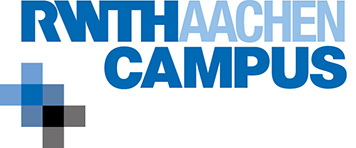7. April 2023
Microsoft will bis 2030 CO2 negativ sein, Bosch wählt schon heute bewusst nachhaltige Lieferanten aus und verzichtet auf Lufttransporte. Der britische Papier- und Verpackungsanbieter DS Smith entwickelt biologisch abbaubare Alternativen für Einwegverpackungen und verwendet für die Herstellung fast vollständig recycelte und nachhaltig beschaffte Materialien.
Die Big Player machen vor, wie Nachhaltigkeitsstrategien konkret und für Unternehmen wie auch Kunden nachvollziehbar realisiert werden. Doch wie sieht es aus, wenn man die Gesamtheit der Unternehmen betrachtet? Nicht alles ist „grün“, was „green“ heißt. Wirft man einen Blick auf die produzierende Industrie, ist das Thema Nachhaltigkeit nicht neu, vielmehr hat es in den vergangenen Jahren an Relevanz gewonnen. Trotzdem ist die praktische Anwendung längst noch nicht flächendeckend umgesetzt.
Products in the focus of industry
One reason for this is that the focus of many industrial companies is still on the production of machines or products. But these are not the main starting points when it comes to reducing footprint and handprint – i.e. all emissions caused at customer companies by products of the supplier company. Levers for sustainability strategies can be found elsewhere in the company, for example in the areas of logistics and service.
Driven by new technologies brought about by advancing digitalization, it has been observed in recent years that the focus – also of manufacturing companies – is shifting more and more.
In addition to traditional products, the tangible manufactured goods, the number of digital products in the manufacturing industry is increasing significantly. In addition, there are services and smart services, adapted to the analog products, which offer the customer significant added value. Examples of this are as-a-service products and pay-per-use subscription models.At the same time, “green services” have also moved into the industry’s focus. These include services that are offered or used to make companies, but also customers, more sustainable. For example, data on the use and service life of machines is collected and evaluated in order to provide customers with suitable maintenance and repair services. This significantly extends the service life of the machines used. The aim of Green Services is to improve the ecological footprint on the customer side and thus increase sustainability in the long term.
Konsortial-Benchmarking Green Service Business
Raising awareness of “Green Services”, providing examples of success for imitation and data on successful implementation is the aim of the consortium benchmarking “Green Service Business” of the Center Smart Services from the Smart Logistics Cluster together with the KVD and FIR e.V. at RWTH Aachen University.
Within the project, five central topics are addressed, in which questions about strategies, realization and monitoring of “Green Services” are answered and evaluated.
- Corporate vision and sustainability strategy
- How important is sustainability in the companies? How is the service business integrated into the sustainability strategy?
- Goals
- What goals could be demonstrably realized in terms of value propositions to the customer?
- Implementation
- How can existing services be “greened” and which services can be designed sustainably for companies and customers?
- Key figures
- How can the success of “green services” be measured? Which key figures need to be defined and collected? And last but not least: How is the monetary value determined?
Management
Which area of the company is responsible for green services, their control and improvement?
- How can the success of “green services” be measured? Which key figures need to be defined and collected? And last but not least: How is the monetary value determined?
- Management
- Which area of the company is responsible for green services, their control and improvement?
The questions are answered in the form of questionnaires sent to more than 200 companies. From them, the most promising candidates for the “Successful Practice” award are selected after evaluation and in-depth interviews. “Learning from the best” is the benchmarking motto, which is why the participating companies not only receive the results of the interviews and case studies. During company visits, the Succesful Practices also present their “green services” and sustainability strategies in practice. Subsequently, the new knowledge about strategies, successes but also requirements and obstacles will be implemented in the context of an own sustainability strategy and “green services”.
For more information on the consortium benchmarking “Green Service Business”, please click here. Your direct contact is Lukas Bruhns: Lukas.Bruhns@fir.rwth-aachen.de


